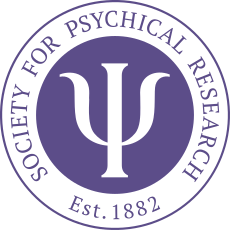The following guidelines are intended to reflect the main principles within which the SPR expects to operate. They are not exhaustive, but it is hoped that they provide a clear framework for those members who actively engage in psychical research. Members (which in this context includes Associate members) are requested to familiarise themselves with the guidelines, and to refer to the SPR office when in doubt about a course of action which may reflect on the SPR.
1. Members should always bear in mind that the Society holds no corporate views, and may not express their opinions on psychical research in a manner suggesting that they are those of the SPR.
2. Membership of the SPR may not be used for personal gain of any kind. Also, it does not in any way imply recognition of ability as a psychic practitioner, or authority on any aspect of psychical research.
3. Members are free to publicise their membership of the SPR, provided they do not give the impression, unless authorised to do so by Council, that they speak on behalf of the Society.
4. Members who participate in the work of the SPR (e.g., by serving on Committees) must abide by the SPR rules and policies established for that work.
5. Members have every right to pursue their own research and to publish their own views but should always ensure that they do not bring the SPR, or psychical research, into disrepute by their conduct. Research should be based on consideration for the welfare of those involved; criticism should be based on rational arguments, and given and received with truthfulness and courtesy, particularly if engaged in contentious or controversial matters or engaging in criticism and review of the work or research of others.
6. SPR Articles of Association provide a procedure by which membership of the Society can be withdrawn if a member’s conduct (but not opinion) is considered by the Council to be detrimental to be in the best interests of the Society.
7. Persons who feel they have been unfairly treated by a member representing the SPR, and where differences cannot be resolved directly, should address their complaints in writing to the Honorary Secretary or the President of the SPR, who will respond within a period of 4 weeks. If the matter has not been satisfactorily resolved at this stage, it can be taken further by a letter to the Honorary Secretary indicating that the complainant wishes it to be brought to the attention of the SPR Council. The Council usually meets every 8 weeks, and a response will be provided after the first Council meeting following the receipt of the complaint.
NOTES:
- Researchers are advised to consult fully with the subjects of their investigations prior to the start of an investigation, to keep within prearranged protocols unless there is full and free agreement with the subjects to a change of the protocol, and take due account of conditions under which investigations take place that might adversely affect a subject's performance. They should also establish beforehand the framework for confidentiality and conditions of possible publication (e.g. as a courtesy, tested claimants should be informed about what is going to be said about them in a forthcoming publication). Researchers are advised to familiarise themselves as well as possible beforehand with the specific area they are researching, and to seek advice if in doubt during and after (eg. if there is suspicion of fraud) their research. General advice on various aspects of psychical research is given in the SPR's Notes for Investigators. The Parapsychological Association also has a very comprehensive document on ethical aspects of research in parapsychology which can be found at: http://www.parapsych.org/ (Ethical Standards: 2005 Revision).
- While members are encouraged to investigate spontaneous cases, they should be aware of the problems which may arise. Some cases may present potentially difficult and sensitive psychological circumstances, which require careful handling and may necessitate professional advice. Potential investigators are encouraged to read the SPR Notes for Investigators, and SPR Officers can be contacted for advice. However, members should be aware that they undertake such investigations as private individuals at their own risk, and the SPR cannot be held responsible for any possible undesirable outcomes.

